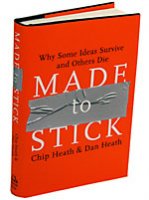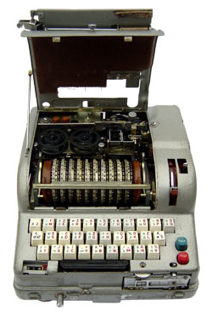It’s Not Just a Bathroom, It’s a Blank Slate
Wednesday, February 21st, 2007 Is there any kind of human creative, ah…output that doesn’t have its own website these days? Jonathan Horak’s anthropological archive, The Writings on the Stall, has collected 359-and-counting user-submitted pieces of transcribed bathroom-stall graffiti. Like bathroom-writing in general, the pieces are tripe-y (and repetitive), but that may be the point. One of my favorites:
Is there any kind of human creative, ah…output that doesn’t have its own website these days? Jonathan Horak’s anthropological archive, The Writings on the Stall, has collected 359-and-counting user-submitted pieces of transcribed bathroom-stall graffiti. Like bathroom-writing in general, the pieces are tripe-y (and repetitive), but that may be the point. One of my favorites:
“Writing 322, via Rick
Massachusetts Institute of Technology
Stratton Student Center
Cambridge, Massachusetts USA 02139
Men’s restroom, ground floorAmerica lost its viginity in Viet Nam.
… and got the clap too.
hey, I got the clap in Viet Nam.
You should watch who you go out with.
SO SHOULD AMERICA!Circa 1972. Each line in a different hand. Took several weeks to complete.”
Seriously, I’m just wondering what other kinds of vernacular word- or picture-objects people out there are collecting. Funny answering-maching messages? Someone has to be. Right?

 Oh, this was so necessary.
Oh, this was so necessary. 
 Except the machine’s predictions didn’t always shake out the way people thought they might. “OLD AGE” sometimes meant ‘died in her sleep after a long life’; other times, it meant ‘gunned down on the street by a homicidal nonagenerian.’
Except the machine’s predictions didn’t always shake out the way people thought they might. “OLD AGE” sometimes meant ‘died in her sleep after a long life’; other times, it meant ‘gunned down on the street by a homicidal nonagenerian.’
 quickly as it should have. A new grassroots group called Katrina Corps aims to do something to change that by sending 25,000 college-aged people to New Orleans during spring ‘07, to gut 5,000 of the 10,000 houses that are wait-listed for it.
quickly as it should have. A new grassroots group called Katrina Corps aims to do something to change that by sending 25,000 college-aged people to New Orleans during spring ‘07, to gut 5,000 of the 10,000 houses that are wait-listed for it.  Over at The Morning News, Robert Birnbaum has an extended
Over at The Morning News, Robert Birnbaum has an extended 





